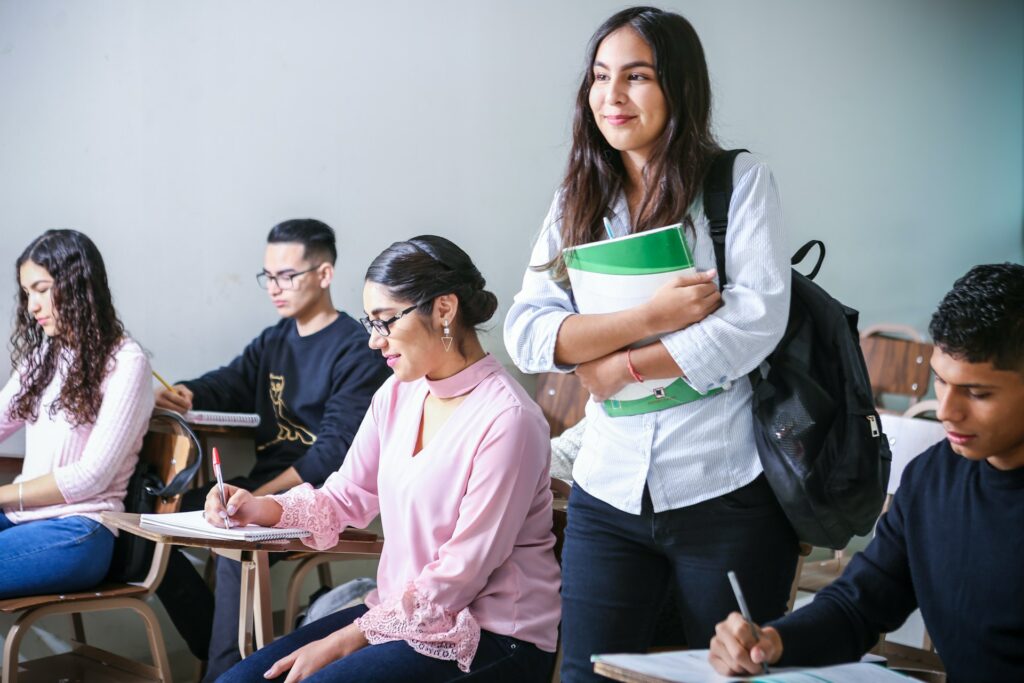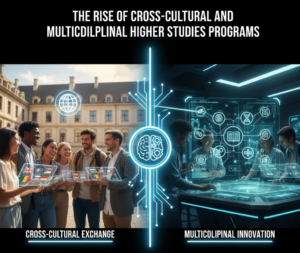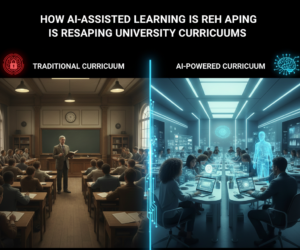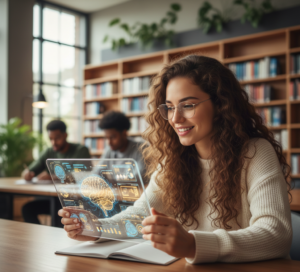Understanding How Technology Makes Studying Abroad Easier in the Year 2025

Understanding How Technology Makes Studying Abroad Easier in the Year 2025
Studying in a foreign country has always been an exciting and growth-oriented experience, but it also carries with it a certain amount of difficulty at times. In contrast, technology in the year 2025 is making this life-altering encounter easier to navigate and more accessible than it has ever been before. Every step of the trip is being subtly revolutionized by digital technologies, from the planning of your relocation to maintaining your connection with family and friends back at home.
Let’s take a look at the ways in which modern technology is taking away obstacles and assisting students in making the most of their time spent abroad.
An Easier Approach to Planning
Even before you board the aircraft, technology plays a significant part in determining the course of action for your study abroad plans. You may compare colleges, courses, and even scholarship choices that are targeted to your interests and budget with the assistance of search engines driven by artificial intelligence (AI) and specialized applications. Virtual campus tours, which are provided by a number of educational institutions, let you to “walk” around lecture halls, libraries, and student housing, which makes it simpler to choose the institution that best suits your needs.
Applications for visas and the paperwork associated with them have also become less daunting. The majority of consulates now provide applicants with digital forms, online status monitoring, and artificial intelligence chatbots that walk them through each stage, saving them countless hours and reducing their stress levels.
In order to overcome the language barrier
Living in a different nation sometimes presents the issue of communicating in a language that is not one’s native tongue. However, real-time translation technologies, whether they are embedded into smart glasses or smartphone applications, have made mundane encounters far less daunting. These talks include anything from placing an order for food to speaking with classmates.
Language-learning applications have evolved beyond immediate translation to become more adaptable, providing students with practice conversations that are modeled on real-life circumstances that they may encounter while studying abroad. By combining learning with instant application, this approach helps individuals gain their confidence more quickly than ever before.
Maintaining a Connection to One’s Home
Anyone who is studying abroad is susceptible to experiencing homesickness. Fortunately, the technology of today makes maintaining a connection very straightforward. You are never too far away from your loved ones and friends thanks to the availability of high-speed video calls, audio messaging, and shared picture albums.
Student forums and social media groups are particularly helpful for newcomers since they allow them to interact with other students, ask questions, and offer advice on a variety of topics, including dealing with cultural adaptations and finding the finest local cafés.
Getting Around in New Cities
Once upon a time, traveling to a new city meant either lugging along maps or asking people you did not know for directions. Today, applications that are empowered with GPS technology are able to do more than just show the way; they also emphasize safe routes, estimate travel expenses, and even recommend local restaurants or activities that are relevant to your interests.
It is also possible for some applications to monitor the schedules of public transportation in real time, which makes it much simpler to be on time for class or to find hidden treasures that are off the beaten road.
Balance between Life and Academics
The use of apps and other digital tools may assist students in staying organized and reducing stress in a variety of ways, including keeping track of assignments and managing daily spending. Using digital planners, students may get reminders about their courses and deadlines, and budgeting applications can help students better manage their limited cash by categorizing their expenditures.
Writing tools and language assistants that are driven by artificial intelligence may also aid students in composing essays or emails, which is particularly helpful when writing in a language that is not their mother tongue.
Developing a Community That Is Global
One of the most significant effects that technology has on studying abroad is the way in which it facilitates the formation of long-lasting ties between people of different cultures. Students have the opportunity to share their experiences, locate mentors, and potentially open doors to internships or career possibilities all around the globe via the use of online forums and alumni networks.
A digital safety net that fosters connection and progress is now supporting what was formerly an isolated plunge into the unknown. This is a significant change from the past.
- Even if it still demands bravery and the capacity to adapt, studying abroad in the year 2025 is far more accessible and enjoyable because to technological advancements. Through the use of digital resources, students are able to spend less time thinking about logistics and more time immersing themselves in new cultures, ideas, and friendships. This includes everything from preparation and paperwork to everyday living and emotional support.
When everything is said and done, technology does not take the place of the human experience of living abroad; rather, it only clears the way for students to concentrate on what is most important: discovering, learning, and developing.




